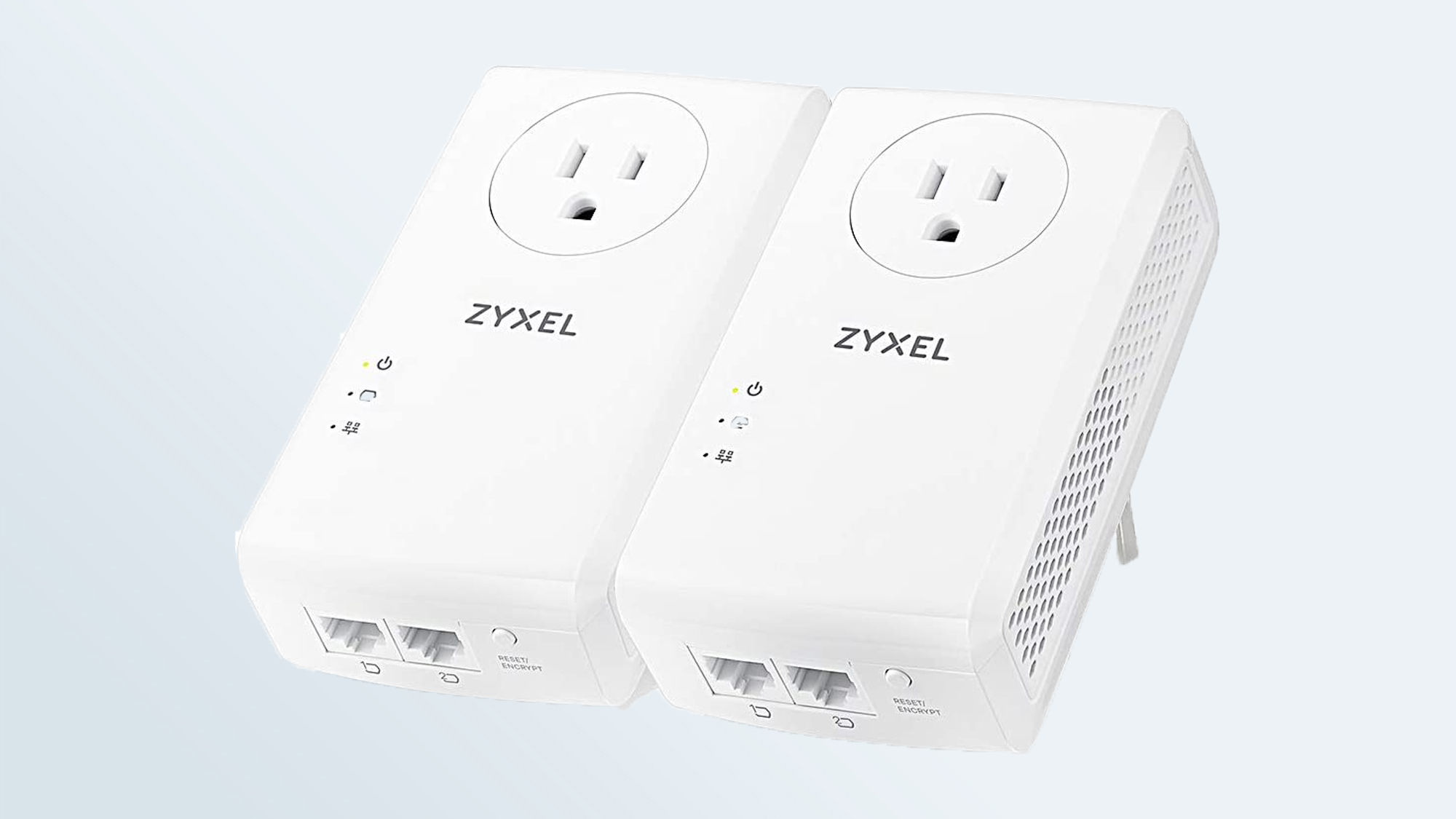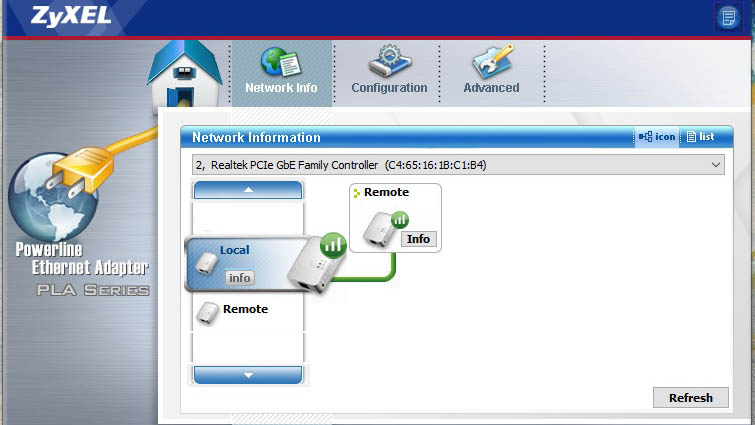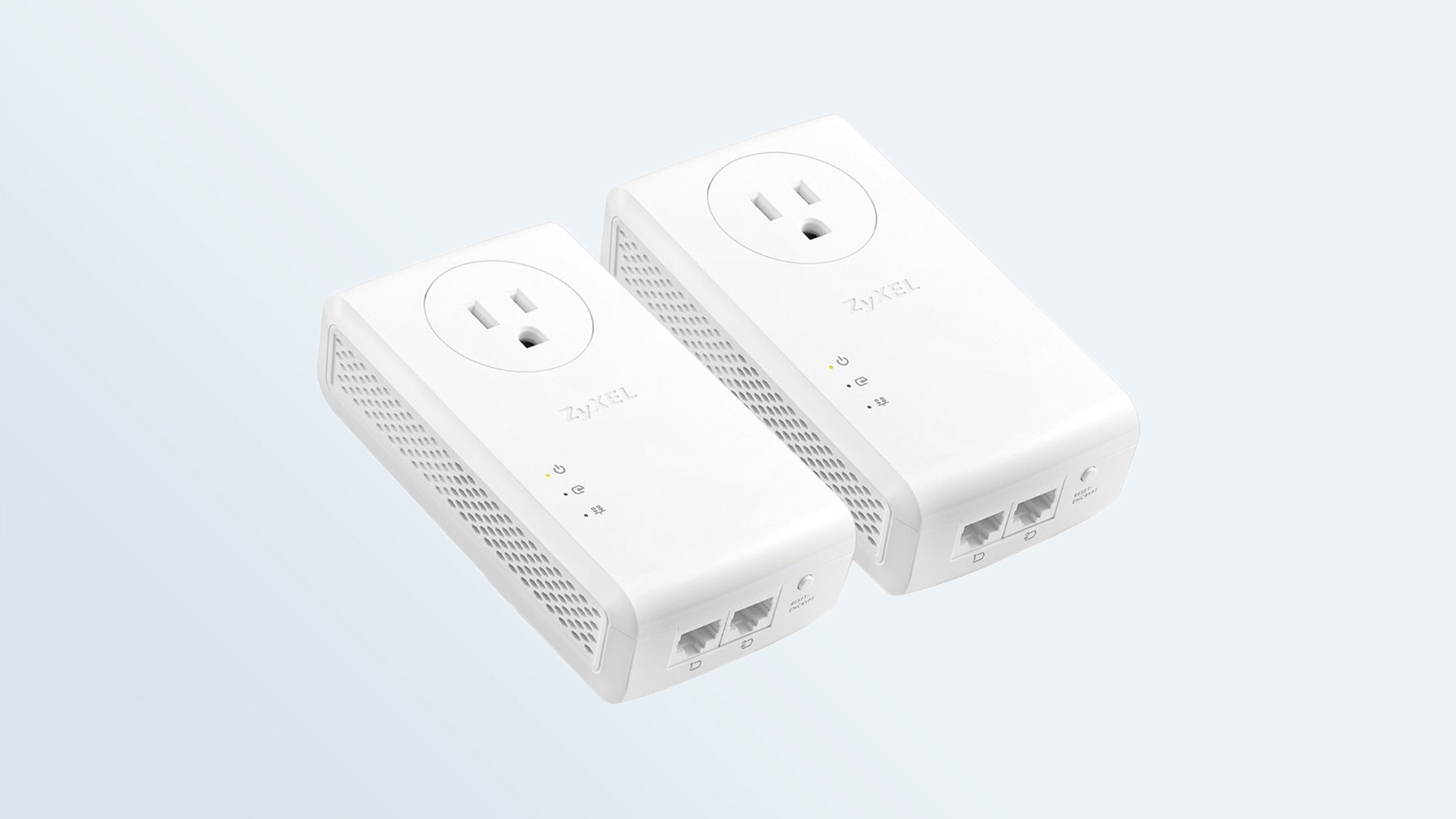Tom's Guide Verdict
With its pair of Ethernet ports and AC passthrough outlet, the Zyxel PLA5456 can help push data throughout your home but is big and delivered unexceptional performance and range. It’s no bargain at $100 for two devices, but the PLA5456 is for buyers looking for a powerline extender that quietly does its work behind the scenes.
Pros
- +
Pair of Ethernet ports
- +
AC passthrough outlet
- +
Monitoring utility
- +
2-year warranty
Cons
- -
Large
- -
Lacks effective power conservation
Why you can trust Tom's Guide
Max Throughput: 54.0Mbps
Performance at 100 feet: 16.8Mbps
Range: 750 feet
Size: 5.2 x 2.8 x 1.7 inches
Three/Two Prong Plug: Three
Ethernet Gigabit Ports: Two
Estimated Power Bill: $4.30 per year
The Zyxel PLA5456 is big and combines a pair of Ethernet ports with a useful monitoring utility and a handy AC passthrough outlet. Still, it doesn’t make up for the device’s disappointing throughput, range and power use. The PLA5456 offers middle of the road performance, price and warranty for a middle of the road price.
As our Zyxel PLA5456 powerline extender review shows, it could offer better performance, but the inclusion of that extra power outlet and easy setup mean that it's a solid competitor with the best powerline extenders on the market for those who are less concerned about getting top data speeds.
Zyxel PLA5456 Powerline Extender: Design and features
At 5.2 x 2.8 x 1.7 inches, the PLA5456 is among the largest powerline devices available, similar in size to the Netgear PLP2000. It’s positively huge looking compared to the D-Link DHP-601AV. The device’s white plastic case has cooling vents on two sides and three LEDs upfront to show Power, Ethernet and Powerline.

Its three-prong AC outlet might get in the way in older homes with ungrounded outlets but the PLA5456 offers up a passthrough outlet to replace the one it uses. To service a pair of devices, like a TV and a computer, the PLA5456 has two Ethernet ports below.
Its combo Reset/Encrypt button is a multi-tasker compared to those with several control keys. A short press adds the device to a 128-bit AES encrypted network, while a medium press removes it. A long press returns the device to its factory defaults.
Under the skin, the PLA5456 uses the HomePlug AV2 standard for powerline transfers and Multiple Input Multiple Output (MIMO) technology to service several family members at once. According to Zyxel engineers, it has a peak throughput of 1.8Gbps and can accommodate up to 16 powerline devices on a network.
Zyxel PLA5456 Powerline Extender: Performance
Built around Broadcom’s BCM60500 powerline chipset, the PLA5456 delivered mediocre performance scores across the board. It never led the group and often was near the bottom of the rankings.
The PLA5456’s best showing was its baseline throughput of 54.0Mbps out of my home’s 200Mbps connection. That’s a little over half the bandwidth delivered by the Netgear PLP2000 but was good enough for third place in the data-moving category. This throughput fell off quickly and at 100-feet, the system only moved 16.8Mbps, about one-sixth the throughput of the PLP2000.
Overall, the PLA5456 had a range of 750-feet, well short of the TP-Link TP-LA9020P’s 1,075 feet but ahead of the D-Link DHP-601AV’s 525 feet. It did a reasonable job of supplying data to a previously unconnected garage with 18.5Mbps of throughput. That was more than enough for watching videos, playing games and bouncing between Web sites.
While working, it used 3.6 watts, but the PLA5456 lacks effective power conservation, even with its Standby mode enabled. That said, expect that it will cost about $4.30 a year – about twice the cost of the DHP-601AV – if the PLA5456 is used 12 hours a day. Its case hit a peak of 103 degrees Fahrenheit.
Zyxel PLA5456 Powerline Extender: Setup and software
The pair of PLA5456 devices fired up and within a few seconds was moving data over my home’s power cables. It includes a monitoring and configuration utility with a map of the powerline network. The app can rename devices and set their data priority but, like the Trendnet TPL-423E2K’s software, it can’t run full screen.

While it can’t provide the peace of mind of the TP-Link TPL-423E2K’s three-year warranty, the Zyxel stands by the PLA5456 with two years of coverage and support. It’s a far sight better than the Netgear’s 90-days of support. Zyxel’s online resources include a complete user’s guide and downloads.
Zyxel PLA5456 Powerline Extender: Verdict
The Zyxel PLA5456 powerline extender is a good example of the importance of performance. Even with simple setup and a built-in passthrough outlet, the shorter range and limited bandwidth it offers may be good enough for basic uses, but for most modern households, where data-intensive tasks like streaming Netflix and managing an array of smart home devices is common, it just doesn't impress.
Overall, it does the basics to help fill a home with powerline data with a pair of Ethernet ports and a useful utility for monitoring and configuring the network. Lacking the performance of the Netgear PLP2000, the extended range of the TP-Link TP-LA9020P or the price tag of the D-Link DHP-601AV, Zyxel PLA5456 fell short on performance.
Brian Nadel is a freelance writer and editor who specializes in technology reporting and reviewing. He works out of the suburban New York City area and has covered topics from nuclear power plants and Wi-Fi routers to cars and tablets. The former editor-in-chief of Mobile Computing and Communications, Nadel is the recipient of the TransPacific Writing Award.


